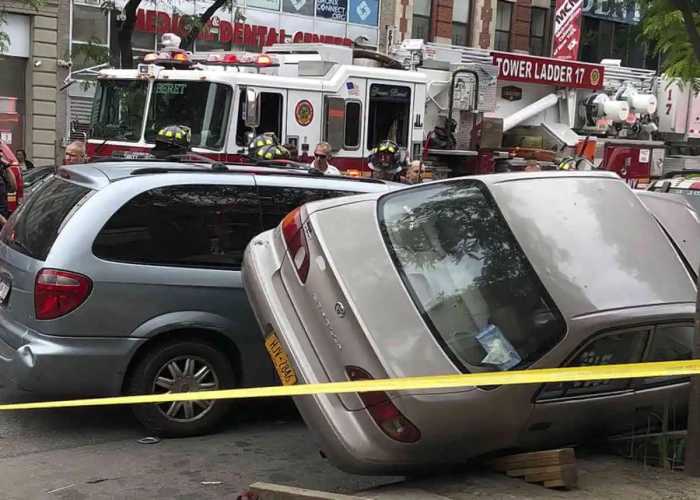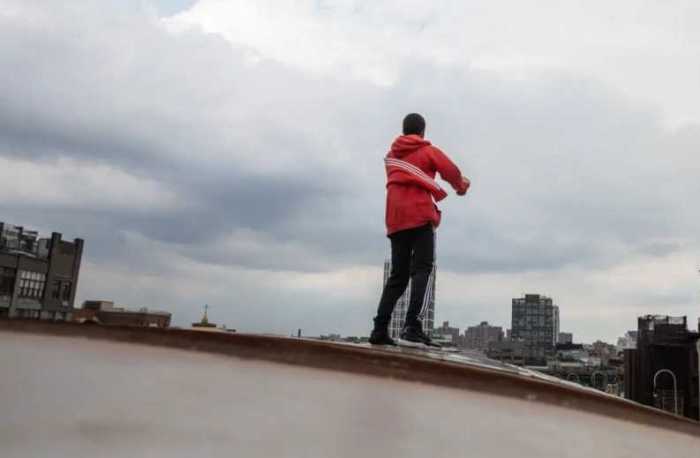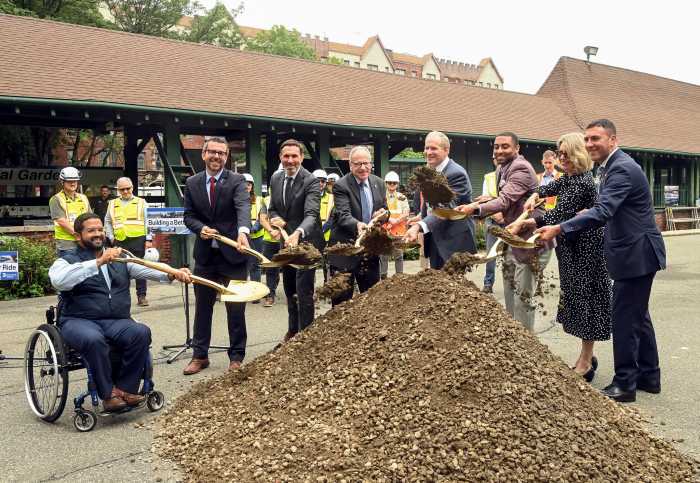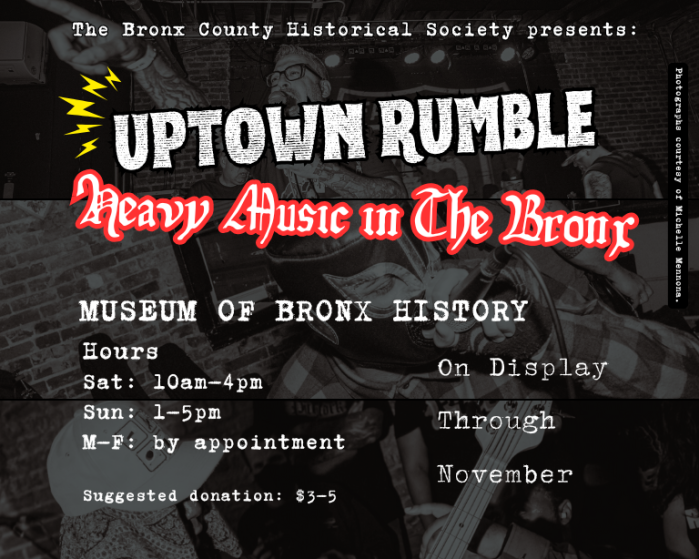The east Bronx e-scooter pilot launched on Tuesday — a month later than planned — although a group of Pelham Parkway residents aren’t happy about the program launching at all.
The program will bring up to 3,000 scooters from Wakefield to Pelham Bay in a first phase this year and up to 6,000 more from Parkchester to Edgewater Park for a second phase next year. The neighborhoods will be geo-fenced, first restricting the scooters to the phase one area, and then to all the neighborhoods included in the approximately 17.7 square mile zone.
On Tuesday, e-scooter companies Lime, Bird and Veo held a scooter sharing launch event for the pilot at the intersection of Bronxdale Avenue and Bronx Part East.
The program, which is overseen by the New York City Department of Transportation (DOT), is meant to help reduce carbon emissions and provide an affordable safe transportation option. Data will be collected throughout the program to assess its effectiveness.
But the pilot isn’t being warmly welcomed by everybody.
“They’re using us as guinea pigs, testing this pilot program, saying, let’s put this here and see what happens,” Roxanne Delgado, founder of Friends of Pelham Parkway, told the Bronx Times.
Delgado gathered with 12 other residents at Holland Avenue and Pelham Parkway North on Saturday afternoon to protest the launch, just days before the scooters hit the streets.
Among voicing safety concerns, the protestors said DOT didn’t involve the Pelham Parkway community in its plans. Of additional concern is scooters encroaching on the Pelham Parkway greenway and the neighborhood’s parking spots.
The residents expressed concerns over reckless riders getting in the way of runners, walkers and bicyclists on the Pelham Parkway greenway and drivers on the road.
In early May, Matthew Arnacio, DOT director of Community Affairs and Planning, declined a request to meet with Friends of Pelham Parkway, according to emails provided by Delgado.
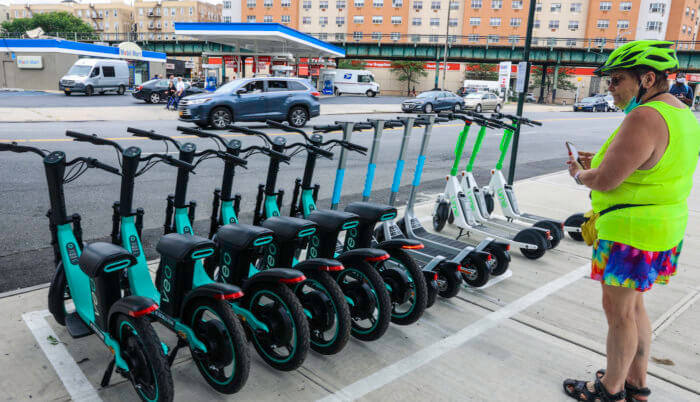
Christopher Stewart, a Cruger Avenue resident, said the city should have installed bike and scooter lanes before launching the e-scooter program, and that residents already have issues with bike and scooter riders lacking etiquette on the greenway—a problem he believes the pilot will escalate.
“I’m telling them, slow down, you know, share the road, and these guys don’t listen,” he said at the protest.
In preparation for the launch, the scooter companies provided almost 15 demonstrations and gave out dozens of helmets, which are encouraged but not required to ride the device.
“After a year of dedicated effort we are seeing the City prioritize the transportation needs of Bronx residents,” said City Councilman Fernando Cabrera in a statement released by DOT prior to Tuesday’s launch. “And I am excited to see the future of this e-scooter program. I urge e-scooter drivers to respect traffic laws and maintain the safety of pedestrians.”
The e-scooter pilot was the brainchild of Cabrera, who sponsored the laws passed by the City Council in June 2020 that legalized e-scooters in the city and also required a pilot program in areas underserved by bike-share programs. Cabrera, a Democrat, cited parking issues in the borough as part of the reason for his support of the e-scooter program.
As for parking, critics take issue with the roadbed corrals — street parking spaces — that are now marked for scooters. Corrals, designated spaces stripped on sidewalks or parking spots, are designed to keep stationary e-scooters out of the way in busy areas. E-scooter riders that end their trips in areas with corrals will be required to park in them, while users can park their scooters anywhere along the sidewalk curb in areas without corrals.
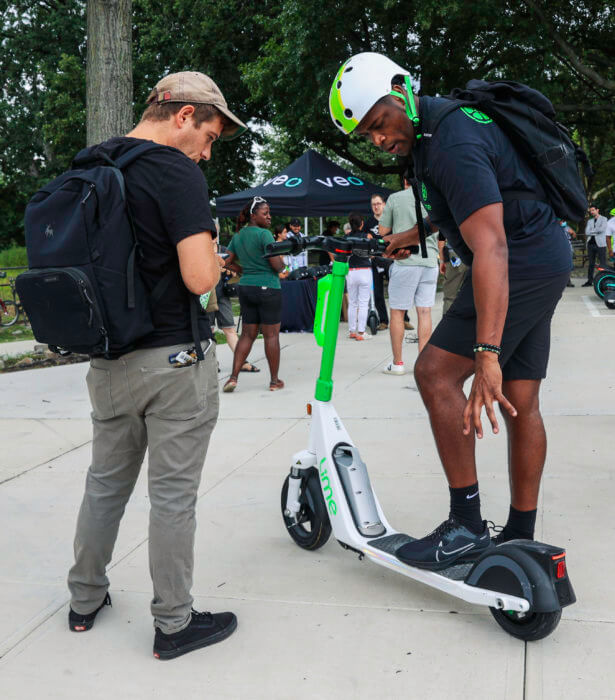
Kevin Arnold, a Holland Avenue resident, said most residents in the area need parking spaces more than scooters, and the scooters should be parked at train stations. Delgado said on Friday that she knows a resident who received a ticket for parking in a corral space, before the pilot even began.
DOT has been accepting feedback online for where corrals should be placed, and pilot representatives presented to Community Boards 10, 11—which includes Pelham Parkway—and 12, about the corrals, which are planned by DOT and paid for by the scooter companies participating in the pilot. Out of 88 installed corrals, 71 are on sidewalks and 17 — a little more than 19% — are on roadbeds, according to DOT maps.
The pilot was planned to launch in early July, and DOT has not said what caused the delay.
Cabrera did not respond to requests for comment.
Aliya Schneider is contributor for the Bronx Times. For more coverage, follow us on Twitter @bronxtimes and Facebook @bronxtimes.


